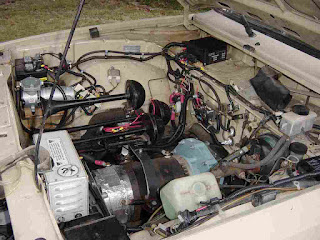Battery swapping Technology for EVs

BY AFZAL YOUSAF Battery charging has a pivotal role in the adaptability of EVs. As battery is the only source of energy, the current charging scheme is not completely satisfying the customer demands. It includes plugging the EV into an outlet,either individual household or in a battery charging station and leave the vehicle for hours until it's fully charged. The time taken for charging EV is very long compared to the refuelling of gasoline-powered vehicles. This charging time in EV is considered as the biggest barrier in adoption of electric vehicle. On other hand, EVs are offering decent range suitable for daily travel, many users consider charging as an important factor in their driving needs. Another hurdle faced by the charging station authorities is the cost of building charging station facility and required real estate. EVs take hours to fully charge, so all these time it needs a parking space. So deploying a battery charging station is very costly, especially in de...



